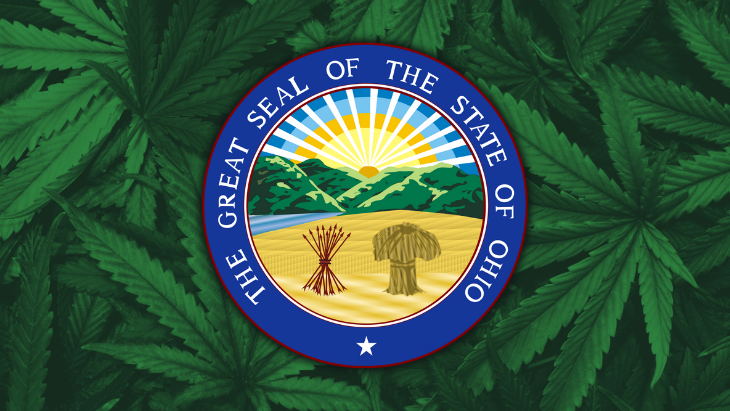A Franklin County judge on Tuesday paused Gov. Mike DeWine’s public health emergency health order banning the sale of intoxicating hemp products for 14 days.
Franklin County Common Pleas Court Judge Carl Aveni issued a temporary restraining order, which takes effect immediately, blocking an executive order DeWine issued last week, saying he is concerned that the governor is creating “new definitions” about what constitutes intoxicating hemp that don’t exist in state law, Cleveland.Com reported.
The governor’s order, signed last Tuesday, directed all retailers to remove intoxicating hemp products from their shelves and cease sales. Failure to comply meant that authorities could cease products, and that businesses could be subject to a fine of $500 daily while the sales continue. The order was set to last for at least 90 days.
DeWine’s ban faced legal pushback in a lawsuit filed by three Ohio businesses affiliated with the hemp industry, Titan Logistics Group, Fumee Smoke and Vape and Invicta Nutraceuticals.
Jonathan Secrest, an attorney for the plaintiffs, told Aveni that DeWine’s executive order created a definition of “intoxicating hemp” out of whole cloth, and that his definition – cannabis products with a maximum of 0.5% of THC per serving or 2 mg of THC per package – was illegally stricter than state law.
“Gov. DeWine does not understand what he’s regulating,” Secrest said.
That’s because state law has no definition of “intoxicating hemp,” but it defines hemp as cannabis containing up to 0.3% mg of a specific form of THC – delta-9. Cannabis with THC levels higher that 0.3% is considered to be marijuana.
DeWine’s hemp limits in his executive order, however, were on concentrations of THC in general.
As THC can come in other forms, such as delta-8, Secrest argued that DeWine’s order would effectively ban hemp products with lower percentages of delta-9 THC than what state law defines as hemp.
Aveni agreed, saying DeWine’s hemp limits are “antithetical” to the definition of hemp passed by the state legislature.
Aveni said DeWine’s order “basically attempts to supercede” the definition of hemp passed by the Ohio legislature, which allows the sale of hemp products at a higher THC level than what DeWine’s executive order permits.
He added that without a court injunction, hemp companies would “face immediate and irreparable harm through substantial disruptions to their business operations.”
Aveni concluded his ruling by urging state lawmakers to take additional action “to determine the appropriate scope of comprehensive hemp regulation.”
“The intent was not to ban an entire category of products,” Secrest said, adding that DeWine’s order was “vague” and “overly broad.”
Drew Campbell, a lawyer defending DeWine’s order, said that was “plainly not the case” and that DeWine’s order is “clearly” lawful.
Aveni asked Campbell what changed since last year, when DeWine told reporters that he didn’t have the unilateral authority to restrict intoxicating hemp.
Campbell replied by pointing to DeWine’s argument that many gas stations and other stores in Ohio sell hemp products that are marketed to children — including gummies with packaging mimicking popular brands of candy — despite containing dangerous amounts of THC.
Read more at Cleveland.Com







